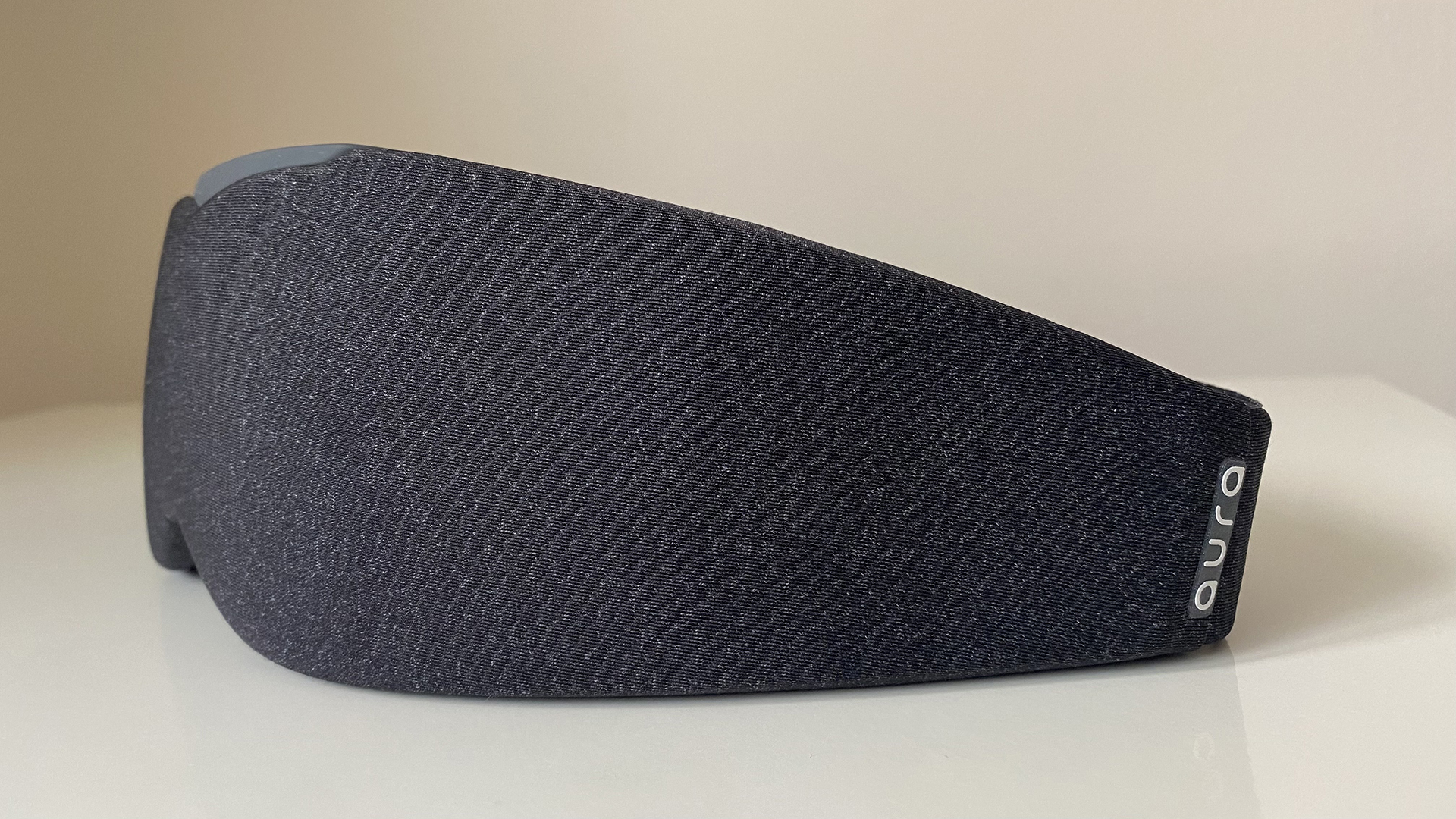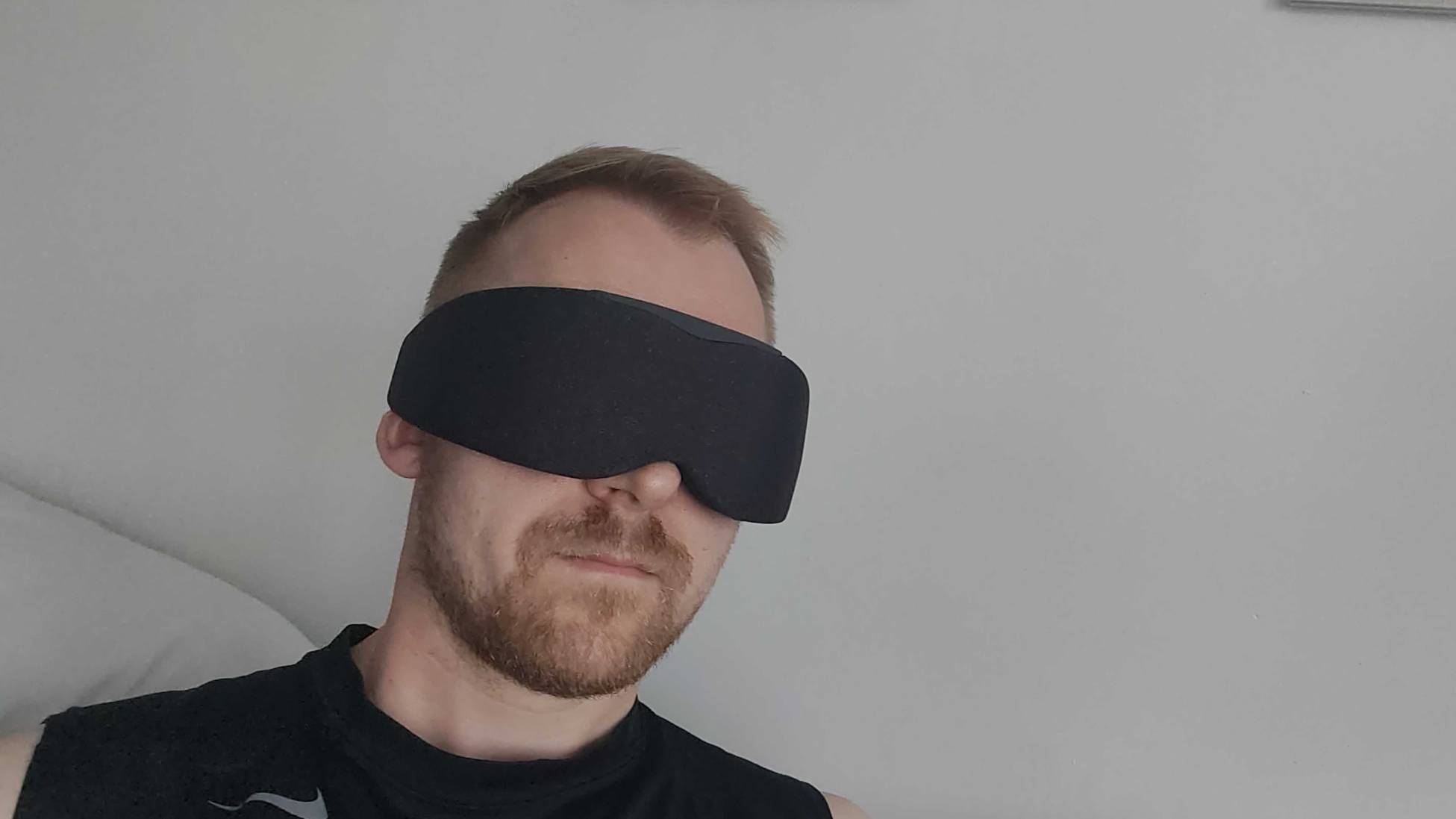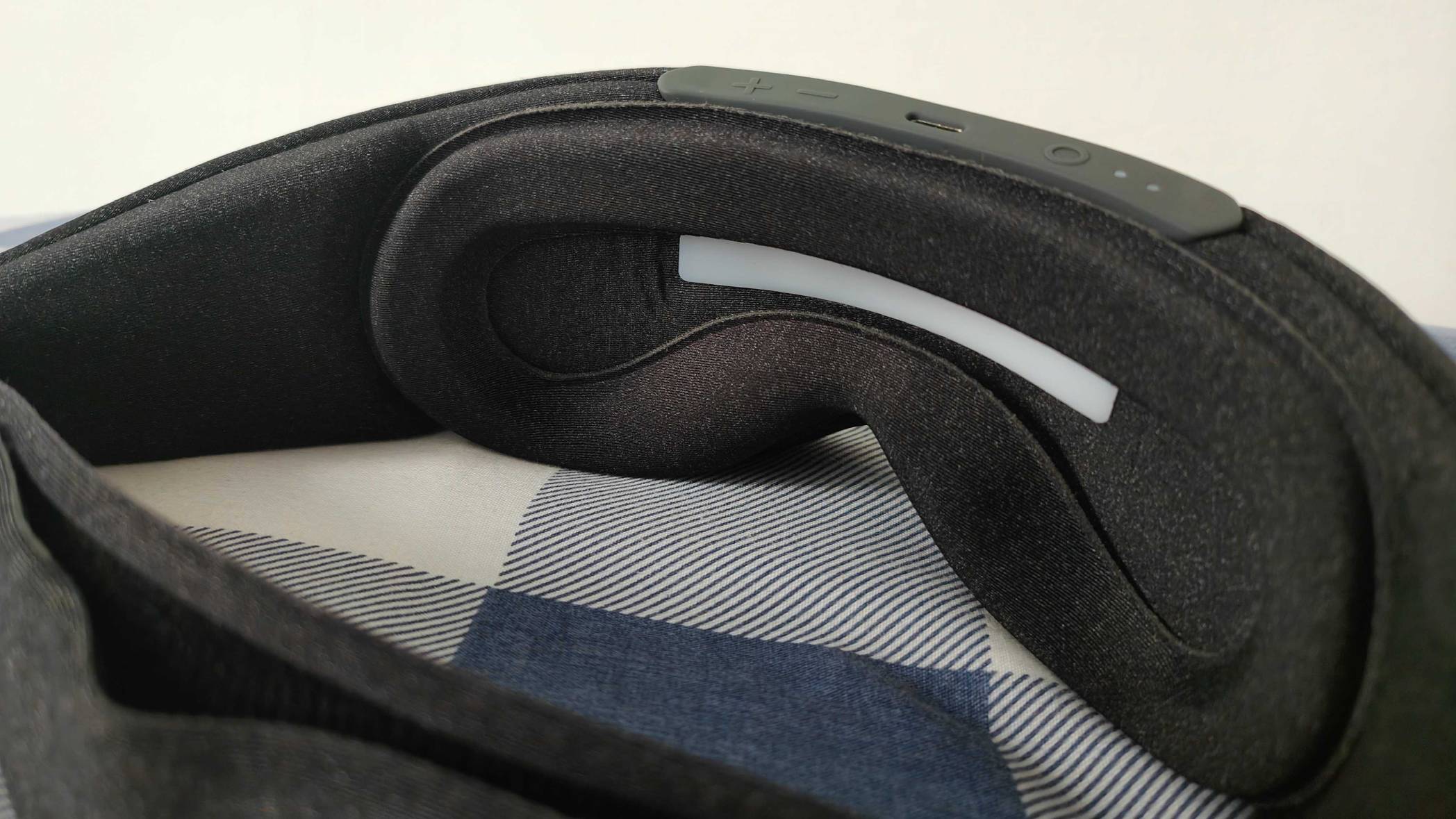The Aura Smart Sleep Mask offers surprising comfort for your eyes – but not your wallet
The Aura Smart Sleep Mask is a premium sleep wearable

UPDATE: 26/09: This article has been amended. We used an unrelated app, also named Aura, to stream content to the device instead of the accompanying Aura Dreamscape app. All references to the app requiring a subscription fee and adding this onto the price of the Aura Smart Sleep Mask have been removed.
I was exhausted. I had just got back from a trip away, having done more driving in three days than I normally did in two weeks. This included several trips escorting a friend to a nearby hospital, where I had stayed until long past midnight. I was finally back home in my own bed, and I was desperate for a good night’s sleep.
Consequently, I reached for a device on the pile of gadgets I have for review: the Aura Smart Sleep Mask. It’s not exactly one of the best sleep trackers: unlike the Oura Ring, one of our best smart rings that monitor the quality of your sleep, the ‘Aura with an A’ sleep mask is more focused on improving it. It does so with a few interesting features, although it comes with an all-too-common-these-days subscription-based app.
I charged the mask with the included USB-C cable. I slipped it on and was struck by how light and comfortable it was: the eye-cushion insert and coverings softened the press of the hard plastic casing against your face. Even though the sensation was unfamiliar, I quickly got used to sleeping on my side with it.

Its contoured design is said to block 100% of light, and I would say that apart from a very slender piece of light below the seam, it’s more or less completely accurate. All-fabric masks may be more comfortable for side sleepers, but this hard-case mask blocks out ambient light more effectively than a thin slip of fabric. It also allows you to have fun and gently annoy your significant other by pretending to be Cyclops from the X-Men.
The Aura mask is Bluetooth-enabled, allowing you to stream audio content from your phone through the mask using several ultra-thin speakers. The mask itself stores a few ambient soundscapes like rainfall and forest sounds in its Zen mode, and it’s designed to stream content from the Aura app.
I experimented with Spotify and found it could stream from there too, so if you wanted to use your own audiobooks from Audible, for example, there’s no reason you couldn’t do so. I opted for the basic Zen mode, pressed the under-fabric 'on' button at the center of the mask, and went to sleep. It’s an odd sensation, pressing the mask into your face to start it, and I spent a bit of time fumbling with it.
Other than waking up in the middle of the night to use the bathroom and momentarily forgetting I was wearing it, I slept extremely well. Inside the mask is a wake-up light bar called a Glow bar, which acts like the best wake-up lights to imitate a sunrise. It’s a comparable experience to using a separate wake-up light, and a really effective, very gentle way to wake up: far more preferable than your phone’s alarm clock.

Really, it’s an excellent piece of kit, and I can’t fault either its comfortable design, innovative features like the Glow bar, or its performance as a set of sleep headphones. I genuinely quite enjoyed wearing it, although some of that may have been novelty.
However, the biggest problem facing it, as mentioned in our full Aura Smart Sleep Mask review, is the price tag. At $229 (around £170 / AU$335) it's pitched at those with serious money to throw at better sleep.
There are cheaper alternatives to the Aura Smart Sleep Mask out there, like Snoozeband and Musicozy, but I have not tried Snoozeband yet and so can't speak to its quality. The Deluxe model does clock in at $79.99 / £59.99 / around AU$120.
I loved the experience of the Aura Smart Sleep Mask, but wouldn’t necessarily buy it as an essential without trying some cheaper alternatives first.
You might also like...
Get daily insight, inspiration and deals in your inbox
Sign up for breaking news, reviews, opinion, top tech deals, and more.

Matt is TechRadar's expert on all things fitness, wellness and wearable tech.
A former staffer at Men's Health, he holds a Master's Degree in journalism from Cardiff and has written for brands like Runner's World, Women's Health, Men's Fitness, LiveScience and Fit&Well on everything fitness tech, exercise, nutrition and mental wellbeing.
Matt's a keen runner, ex-kickboxer, not averse to the odd yoga flow, and insists everyone should stretch every morning. When he’s not training or writing about health and fitness, he can be found reading doorstop-thick fantasy books with lots of fictional maps in them.